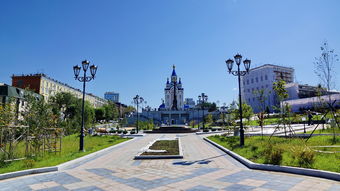As we stand on the precipice of a new era in agriculture, it's crucial to reflect on the role technology and sustainability play in shaping the future of this vital industry. Agriculture, the backbone of human civilization, has undergone numerous transformations over the millennia. From the Neolithic revolution to the Green Revolution, each leap forward has been marked by innovation and adaptation. Today, as we face the challenges of climate change, resource depletion, and a growing global population, the future of agriculture hinges on our ability to embrace new technologies and sustainable practices.
The integration of technology into agriculture is not a new concept. However, the pace and scale of technological advancements in recent years have been unprecedented. Precision agriculture, which uses information technology to optimize agricultural production, is at the forefront of this transformation. GPS-guided machinery, drones for crop monitoring, and soil sensors are just a few examples of how technology is being used to increase efficiency and reduce waste.

One of the most promising areas of technological innovation in agriculture is biotechnology. Genetically modified organisms (GMOs) have been a controversial topic, but they offer significant potential for increasing crop yields, improving nutritional content, and enhancing resistance to pests and diseases. By carefully selecting and modifying genes, scientists can create crops that are better suited to changing environmental conditions, which is particularly important as climate change continues to impact agriculture.
Another critical aspect of the future of agriculture is the adoption of sustainable practices. Sustainable agriculture aims to meet the needs of the present without compromising the ability of future generations to meet their own needs. This involves a holistic approach that considers the economic, social, and environmental impacts of farming.
One of the key principles of sustainable agriculture is the conservation of soil health. Healthy soil is essential for crop production and plays a crucial role in carbon sequestration, which helps mitigate climate change. Practices such as crop rotation, cover cropping, and reduced tillage can improve soil structure and fertility, while also reducing erosion and the need for chemical fertilizers.
Water management is another critical component of sustainable agriculture. As water becomes an increasingly scarce resource, farmers must find ways to use it more efficiently. Drip irrigation and other water-saving technologies can significantly reduce water usage while maintaining or even increasing crop yields. Additionally, the use of drought-resistant crop varieties can help farmers adapt to changing weather patterns.
The future of agriculture also depends on the development of alternative energy sources. Traditional farming methods often rely heavily on fossil fuels, which contribute to greenhouse gas emissions and climate change. By transitioning to renewable energy sources such as solar and wind power, farmers can reduce their carbon footprint and become more resilient to energy price fluctuations.
Moreover, the role of education and knowledge transfer cannot be overstated. As new technologies and practices are developed, it's essential that farmers have access to the information and training they need to implement these changes effectively. This requires investment in agricultural extension services, research institutions, and educational programs that focus on sustainable and technologically advanced farming methods.
In conclusion, the future of agriculture is a complex tapestry woven from threads of technology and sustainability. As we face the challenges of the 21st century, it's clear that the industry must evolve to meet the demands of a changing world. By embracing innovation and prioritizing sustainable practices, we can ensure that agriculture continues to thrive, providing food security and economic stability for generations to come. The path forward is not without its obstacles, but with determination, collaboration, and a commitment to progress, the future of agriculture can be one of growth, resilience, and prosperity.









